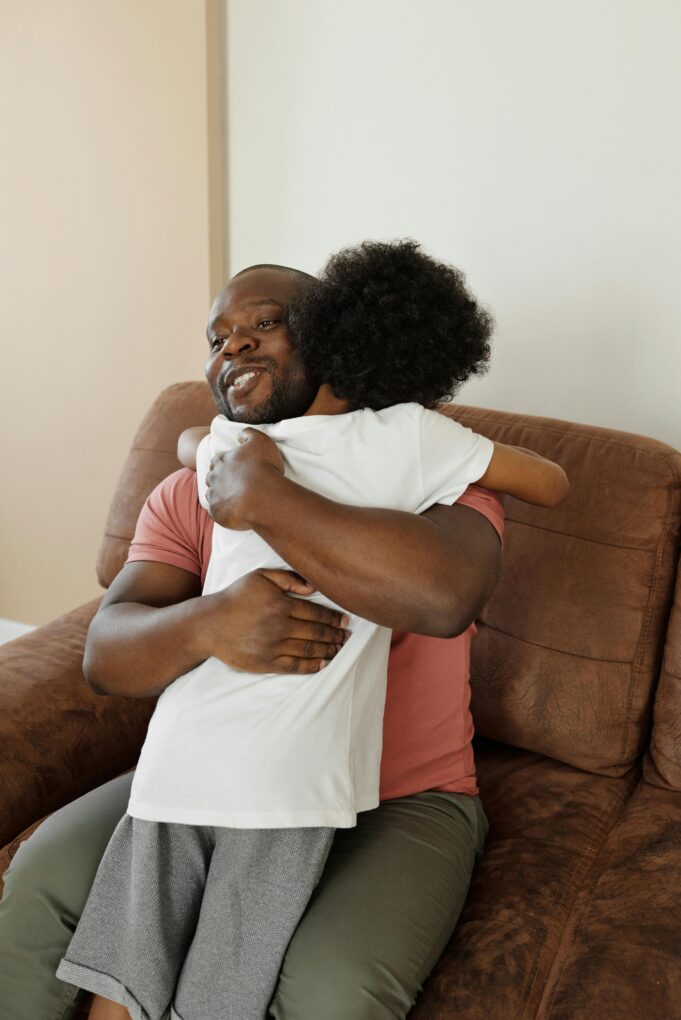Black fatherhood is one of the joys of my life. I didn’t have a relationship with my father and for many years growing up, I declared I didn’t need a father. Indeed, when I looked at many of my friends and peers, it seemed like perhaps I was better off without a father. There always seemed to be conflict between fathers and sons.
Today I see those relationships differently and can consider fathers fighting to make a living, keeping their street-running sons from being caught in the hazards of life in Baltimore and enduring the daily and hourly battles that come with being a Black Man in America.

I vowed to be a better father and a real father, like the one I never had. But not having a daddy did impact me greatly. I think it contributed to feelings of insecurity and it brought up a deep question I later realized had lingered in my subconscious mind: “If my father didn’t love me, could anyone, could any man be trusted to love me?”
The thought came at a pretty peculiar moment and at a moment when I was doing great and engaged in a conversation and work with a powerful man whose wisdom, fearlessness, commitment to Black progress and example had inspired me.
After some thought about my discomfort, I was able to identify and come to the root of my problem. Once I could identify this thing I could deal with it.
For all my years of believing and declaring that I didn’t need a father, I did need a dad. And it was through divine providence and Allah (God’s) Power, the Supreme Wisdom of the Honorable Elijah Muhammad, leader of the Nation of Islam, and love contained in the words of Minister Louis Farrakhan that I embarked on a healing journey and one that allowed me to reconcile with my own father.
Through the magic of audiotape cassettes and video cassettes (so you know how long ago that was), this man in Chicago touched my heart, soul and mind in Washington, D.C. He gave me a mission: The spiritual, moral, mental and economic resurrection of Black people in the service of nation-building and as a soldier in the Nation of Islam.
I wanted to be a helper to my spiritual father. I dove right in though I was on a path to “success” in the world of those who destroyed us. But I didn’t want their world with its lies, hatred, humiliation and degradation of Black people.
I wanted to build a world of my own and a world for children I had not yet fathered. I also wanted to be a “father” to those like me who never had one and my mission allowed me to do that. I joined other Black men with that same commitment to fatherhood in the home and surrogate fatherhood to our suffering people in the wilderness of North America.
In addition to physical protection, a good Black father offers a model for manhood that his sons and daughters can embrace. He provides for their financial well-being despite court and other systems that constantly seek to destroy him and diminish his role.
These systems provide little or no justice, let alone compassion. So, the Black dad keeps pushing, it’s forward ever. He provides lessons in duty and character which are the foundation for his deep love and sacrifice. He strives to live a life that reflects his beliefs. Falling short, he gets up and starts all over again.
He works to make his community a decent place to live and extends his hand and benefits to those that spring not from his lions but from his vision for a renewed, restored, rejuvenated Black America that commands the respect of the world.
He seeks wisdom with which to feed his children to grow them up with a strong love of self, a wellspring of self-knowledge and an invincible spirit of self-determination.
He is undeterred by the haters and hatred. Painful lies, half-truths and vilification are constantly hurled at him and he battles and overcomes each of these enemies. He boldly declares, “I AM the father.” He refuses to be disrespected, denied or denigrated. He refuses to fail or to fold.
So as a proud papa of six, I embrace and promote the majesty of Black fatherhood. And I salute my fellow fathers and surrogate fathers in our families, our neighborhoods, and those keeping our youngsters from running these deadly streets.
I love each one of my children and I believe every Black child should have the love, safety, opportunity, knowledge of self and self-development my offspring have had. Why? Because I am a Black father. Period.
Naba’a Muhammad is editor-in-chief of The Final Call newspaper. He can be reached via www.finalcall.com and [email protected]. Find him on Facebook. Follow @Rmfinalcall on X, formerly Twitter.













